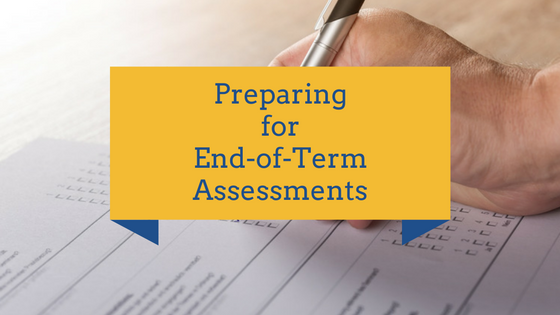
Collecting feedback throughout the semester and gauging student engagement is important for facilitating better learning outcomes by the end of the semester. As the semester comes to a close, your students will have the option to take formal, end-of-term evaluations that are generated by the university. These final evaluations will reflect how well you created your learning assessments throughout the semester, as well as how you match to the university’s standards of teaching; they will play a large role in how your skills as a teacher translate into future employment with the university. While these assessments are weighty, there are ways to help ease anxiety about receiving beneficial and critical assessments from your students.
Speak to your students before the final assessment and encourage them to offer feedback. Vanderbilt University’s Center for Teaching offers helpful points to address when motivating your students to provide constructive advice:
-Emphasize that the assessments are important for how you structure your future courses, and that honest feedback-both positive and negative-are welcomed.
-Be vocal about what type of feedback will be the most useful for you in the future. Provide examples to your students that avoid vagueness and offer some suggestions or expansions on the original critique. For example, “I disliked the course readings” would be more beneficial as: “I disliked the course readings because they all had redundant subject matter.”
-Remind students that the evaluations are completely anonymous and will not impact their grades; some students may be disinclined to offer useful, honest feedback if they are misinformed about the final assessment process.
Once you have received your assessments, maintaining a clear headspace is key. Set aside the proper amount of time-possibly broken down into multiple, comfortable settings-to read through what your students have to say. Like all things in life, it is unlikely that every review will be glowing. David Perlmutter, writer for The Chronicles of Higher Education, confides: ” We seniors are impressed when you have beaten us to the punch when you have spotted issues and are already working to improve for next time.Explanations are always welcome, but arrogance (‘those peasants did not understand my genius’) and defensiveness (‘the undergrads are part of the departmental conspiracy against me’) are not.” If you receive negative feedback, it is important above all else to not shut down-your constructive reaction to negatives is incredibly reflective of your nature as a professor. Instead, after taking time to reflect on what you were told by your students, develop a structured, realistic plan of how you plan to use these assessments in the future.
If you have difficulty interpreting some of the feedback provided by your students, reach out to other faculty members and ask for their seasoned advice. If you have any questions about the final evaluation process, contact your supervisor or department chair for clarification.

